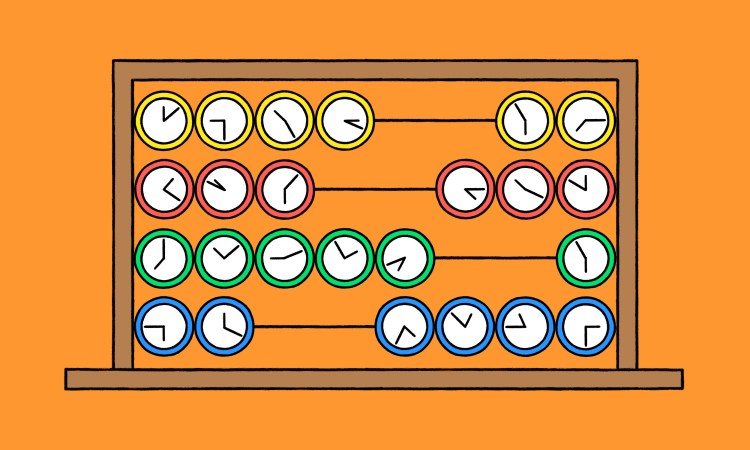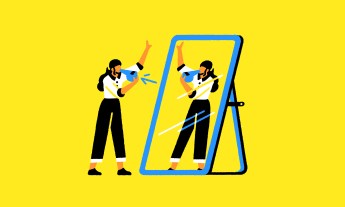
OK, this post won’t tell you how to magically make each day 38 hours long (we’re still working on that). But by assessing our tasks in terms of their significance, we can free up more time tomorrow, says leadership coach Rory Vaden.
This post is part of TED’s “How to Be a Better Human” series, each of which contains a piece of helpful advice from people in the TED community; browse through all the posts here.
“How is it that we have more tips, tricks, tools, technology, calendars and checklists than ever before, and yet we still always seem to be behind?” asks Rory Vaden, a Nashville-based leadership consultant.
His answer: “It’s because everything you know about time management is wrong.”
Most of us manage our time the same ways: by writing to-do lists and prioritizing the items on those lists. We decide upon our priorities by assessing the relative urgency and importance of our tasks.
But there’s a third criteria considered by a group of people whom Vaden calls “time multipliers”: significance. Rather than asking “What’s the most important thing I can do today?”, time multipliers ask “What’s the most important thing I can do today that would make tomorrow better?”
In other words, by thinking about how we use our time today, we can free up our hours in the future. One example of how this works: setting up online bill payment. Perhaps you’ve put off doing it because you think, “I just don’t have two hours to go through all my services and accounts, find their websites or apps, and input my bank information.”
However, Vaden says, “A multiplier realizes that if I can save 30 minutes a month from paying my bills by setting up online bill pay, it makes sense to invest those two hours because after just four months’ time, I will have broken even on that investment.” Sounds good, right?
Below, Vaden shares the 4 questions that time multipliers ask of the items on their to-do lists in order to free up their hours in the future:
Question #1: Can I eliminate this task?
There’s a simple truth: “Anything that we say no to today creates more time for us tomorrow,” says Vaden. When we do say yes to unnecessary duties, we’re usually acting out of guilt — we’re worried about disappointing other people.
Vaden wrestled with this himself until, he recalls, “in one of the interviews I conducted with a multiplier, they said something that changed my life. They said, ‘Rory, it’s futile to go through life trying to never say ‘no’. What you have to realize is that you are always saying ‘no’ to something because anytime you say ‘yes’ to one thing, you are simultaneously saying ‘no’ to an infinite number of others.’”
Question #2: If I can’t eliminate this task, can I automate it?
Online bill paying is one example. But what other obligations could you deal with today so they’re already done tomorrow? For instance, are there items you purchase on a regular basis — pet food, groceries, prescriptions — and could you have them automatically sent to you? Or, are there semi-annual appointments you have — such as getting your teeth cleaned or your hair cut — that you might book in one swoop instead of having to call and schedule them one by one?
And if you’re deterred by the initial time investment or learning curve that this entails, just think about your past year and calculate how many hours you spent, say, buying pet food.
Question #3: Can it be delegated, or can I teach someone else how to do this?
While many of us are fine with offloading the personal tasks that we’re not so crazy about — whether it’s shoveling snow or caulking the bathtub — we can find ourselves more resistant about delegating duties at work.
“You say, ‘Well, they just can’t do it as well as I can,’” says Vaden. “And that may be true once or twice but … if you think longer-term, you realize they’ll be able to master the task just like you did.”
Question #4: Should I do this task now, or can I do it later?
Vaden calls this strategy “procrastinate on purpose.” However, this isn’t procrastination as we typically think about it — you know, endlessly delaying an activity and feeling lousy about it. Instead, procrastinating on purpose is about consciously deciding that we will do a certain thing later, not just letting it fall between the cracks.
Vaden calls intentional procrastination “a virtue.” He says, “There’s a difference in waiting to do something that we know we should be doing … versus waiting to do something because we’re deciding that now is not the right time.”
When you procrastinate on purpose, you’ll eventually decide whether to eliminate, automate or delegate the task, or you may find that it’s risen in significance, importance or urgency, compelling you to do it.
Watch his TEDxDouglasville talk here:












